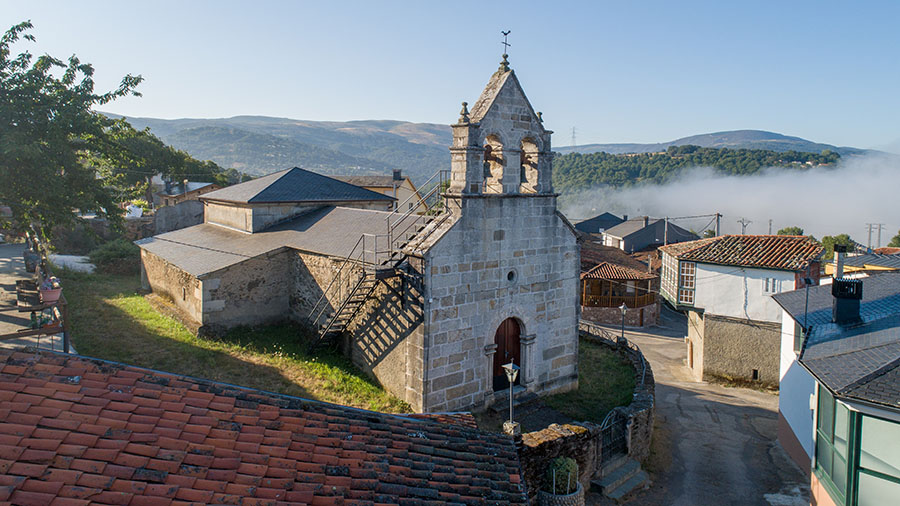Through the parish of Punxeiro crossed the road from where Viana, went to Castile through the Segundodera mountain range
(Zamora). In the mid-nineteenth century, Punxeiro produced “rye, potatoes, chestnuts, some flax, legumes, few fruits and inferior wine”, but nowadays it hosts every year the most popular harvest festival in the whole region.
Punxeiro is a phytonym, that is, a word that designates a plant, in this case the Mentha pulegium, in Galician synonymous with pennyroyal (poexo in Galician; poejo in Portuguese). Therefore,
In the past there was a lot of pennyroyal in this area, hence its abundant form with suffix –eiro.

In the upper part of the village stands the temple dedicated to Saint Marcos, with a single nave and raised altar protected by a gabled roof. Its austere and restrained facade focuses the decorative effort on the main door, decorated with pilasters, capitals with floral motifs supporting a very well executed semicircular arch. The composition ends with a double perforated bell gable crowned by a triangular pediment decorated with pyramidal pinnacles.
Its interior presents, on the main altar, protected by a wooden coffered ceiling, a baroque altarpiece entirely gilded in 1702 by Salgado of Noboa that is organized in three sections separated by Solomonic columns decorated by clusters and vine leaves, a symbol of Christianity that recalls the words of St. John: "I am the true vine and my father is the caretaker of the wine."
In the attic stands alone an image of the Modern Age of Saint Roque showing his sores next to a dog, this time licking the wounds of its owner.
SAINT MARCO OF PUNXEIRO
SAINT MARCO
Popular in all times and eras, this name was very common in Rome (Marco Jun Bruto, for example). Saint Marco, in the 1st century. He was one of the four evangelists. He is the patron of Venice, hence the Republic of Saint Marco, and also of four Galician municipalities. He is also patron of Alexandria,
Albania, Bergamo, Dalmatia, Corfu, Crete and the island of Zante, and in addition to the glassmakers, masons, notaries and scribes, is also invoked against mange, torments, death in impenitence, Lightning, hail, storm and hurricane.
This name has the Latin origin, of Marcus "great blacksmith´s hammer", probably derived from the Etruscan Marce "hammer, blacksmith". It refers to Mars, from the Latin Mars, Martis
"God of war and spring."